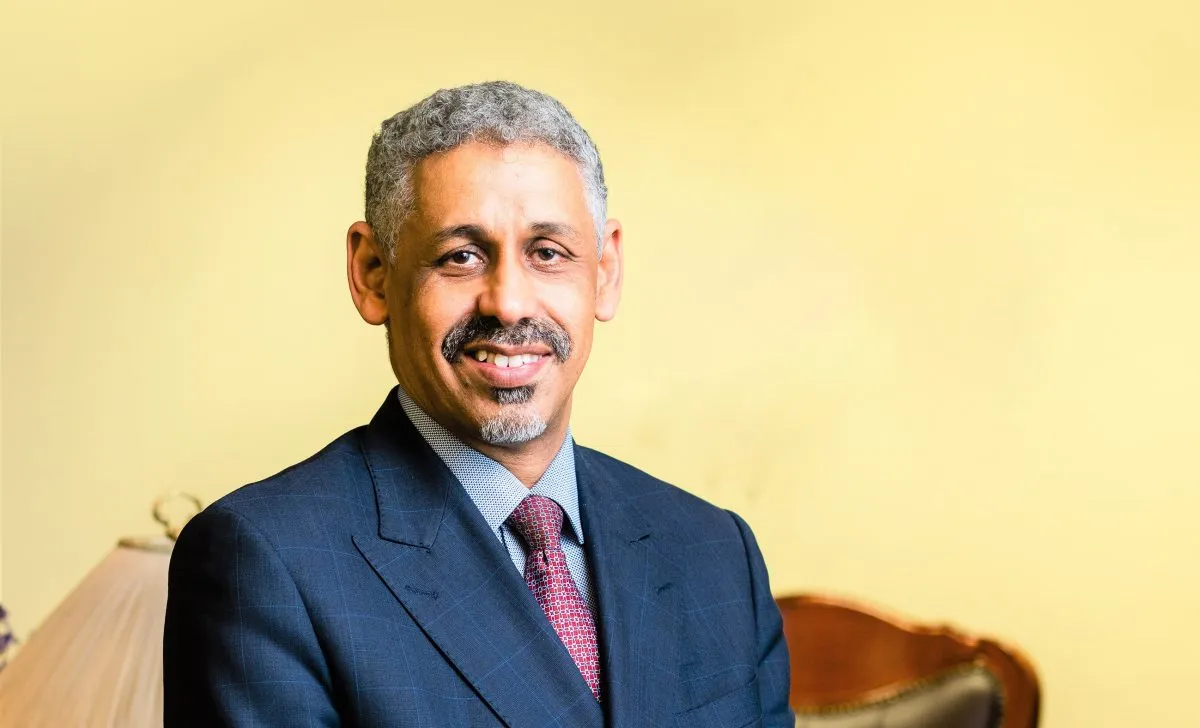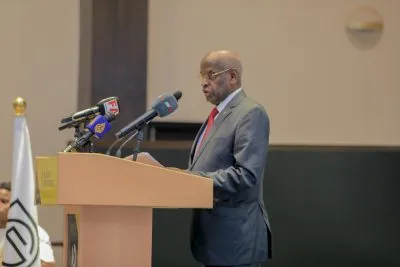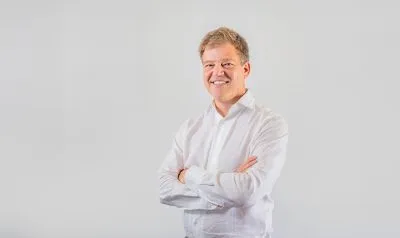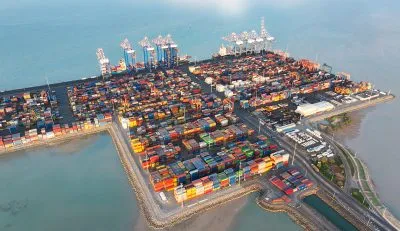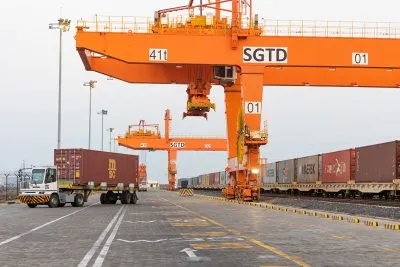This article was produced with the support of BADEA
What should average citizens know about BADEA, your Bank?
BADEA is a multilateral development bank owned by 18 Arab States. I have been simply honoured to be entrusted by its Board of Governors to be its Director General. With nearly fifty years of existence, there is much to be known about BADEA – as documented through annual reports available online.
The Bank’s mission is to promote economic and social development in Africa and foster cooperation between the continent and the Arab countries through investments and trade. BADEA provides financing to both the public and private sectors in four main areas: infrastructure; private sector development and trade financing; agricultural value-chains; and SMEs, with a particular emphasis on women and youth entrepreneurship.
Our interventions align with national development priorities – and with Governments’ commitment to the UN Global Agenda 2030 and to the African Union Agenda 2063. In Senegal, BADEA’s operations align with the Plan for an Emerging Senegal (PSE).
Examples of co-financed and completed projects in Senegal include the following: the Dalal Jamm National Hospital Centre; the Joal-Samba Dia-Djiffère road; the Linguère-Matam road; and the drinking water supply facilities in the Saloum Delta region and the Lower Casamance Islands, to name a few.
How is BADEA engaged in Senegal; in which sectors are you involved?
Senegal has been a great partner to BADEA for the last 48 years, and our partnership is growing – as evidenced by the number of operations and the amount of total commitments. BADEA has been operational in Senegal since 1975 and holds one of the largest and best-performing project portfolios in the region at both the ECOWAS (Economic Community of West African States) and UEMOA (West African Economic and Monetary Union) levels.
As of March 2023, BADEA commitments to Senegal amounted to nearly $700m, earmarked for 95 operations. Financed public sector projects include 28 infrastructure projects – ranging from transport, drinking water supply and sanitation facilities to health, urban and rural development including agriculture.
BADEA financed numerous feasibility studies which resulted in bankable projects that BADEA considered later for financing. Under its institutional support window, BADEA has contributed to the capacity building for public servants in key ministries.
BADEA has been known more for public sector financing; does the Bank finance the Senegalese private sector?
Indeed, BADEA financed directly and exclusively the public sector, via the government, in Senegal and in other African countries – up to 2015.
It is important, however, to underscore that although our financing has gone to government, its impact on the private sector has been self-revealing. Transport, energy, health and education projects, for instance, have substantially contributed to the private sector development.
When BADEA extended its operations to the private sector in 2015 it was more about lines of credits to local and regional banks for them to serve the private entities including SMEs.
Today BADEA uses a certain number of instruments, while developing others to finance both greenfield and brownfield projects as well as trade operations.
S&P Global assigned an AA/A-1+ rating with a stable outlook on 5 October 2022, and Moody’s reaffirmed BADEA’s notation of Aa2 with a positive outlook on 8 March 2023: what do these global ratings mean for you and your partners such as the Government of Senegal?
By design these ratings express independent and informed opinions on creditworthiness of the rated entity. Such informed opinions send a strong signal to the financial markets about the likelihood of defaulting on debt obligations. S&P Global and Moody’ Investors rating for BADEA provide us with confidence that the Bank can go on the market to raise more funds to finance development in the continent with little worries from investors (lenders) about their reimbursement.
Such comfort is extended to actual and prospective partners – even though some of them trusted BADEA from their due diligence way before we had credit ratings with global agencies. A better rating provides an opportunity for BADEA to raise more funds at competitive interest rates in the international market, to finance more projects from both the public and private sectors and to expand its development impact.
Looking at your portfolio, there seems to be a strong emphasis on infrastructure, water and sanitation. Is this specific to Senegal, and why is it that you have been involved in those areas more than others?
Overall, infrastructure has dominated BADEA’s project portfolios around the continent, and Senegal is not an exception.
By the way, this is the case for most development financial institutions (DFIs) for an evident reason. In fact, infrastructure projects are powerful enablers of economic and social development.
The deficit in infrastructure around the continent is huge and the related financing gap is estimated at $130bn to $165bn per year. With this, infrastructure will remain at the top of priorities for many DFIs, BADEA included.
As of 1 March 2022 the largest portion of BADEA funding to Senegal was allocated to transport infrastructure.
This represents about 25%. Water and sanitation projects come second with about 18%, and this is specific to Senegal.
Please note that each country defines their development priorities and determines which financial institutions to work with on each priority.
Senegal is looking at great economic projections over the next few years, and this will accelerate even more with the onset of oil and gas production this year. Is this a country where you see your activities growing over the coming years, and if so, how?
BADEA is encouraged by Senegal’s great economic prospects and does not envision any foreseeable reasons to scale down its operations in Senegal. Submissions from both public and private sectors are likely to keep an upward trend.
As Director General, you were honoured last year for BADEA services to Senegal and the West African Economic Community. The country is obviously important strategically for BADEA as it grows its balance sheet?
I was indeed honoured by His Excellency Macky Sall, President of the Republic of Senegal, for BADEA’s contribution to his country and the West Africa Economic Community.
Senegal has been a great partner to BADEA for the last 48 years, and our partnership is growing as evidenced by the number of operations and the amount of total commitments. BADEA has been operational in Senegal since 1975 and holds one of the largest and best performing project portfolios in the region at both the ECOWAS and the UEMOA levels.
BADEA is one of the members of the Arab Coordination Group, which comprises 10 regional, and international organisations: the Abu Dhabi Fund for Development; the Arab Bank for Economic Development in Africa; the Arab Fund for Economic and Social Development; the Arab Gulf Programme for Development; the Arab Monetary Fund; the Islamic Development Bank (IsDB); the Kuwait Fund for Arab Economic Development; the OPEC Fund for International Development; the Qatar Development Fund; and the Saudi Fund for Development.
The Arab Coordination Group invested around $6,652m over the period of 1975 to 2022.
Read more about Senegal’s booming economy in our Senegal Dossier.

 Sign in with Google
Sign in with Google 